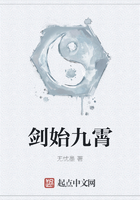“Take it gen tle, s ir; take it gentle, ”said the d airyman.“‘Tis knack, notstrength that does it.”
“So I find, ”said the other, standing up at last and stretching his arms.“I think I have finished her, however, though she made my fingers ache.”
Tess could then see him at full length.He wore th e ordinary white pinner and leather leggings of a dairy-farmer when milking, and his boots wer e clogged with the mulch of the yard; but this was all his local livery.Beneath it was something educated, reserved, subtle, sad, differing.
But the details of his aspect were temporarily thrust aside by the discovery that he was one whom she had seen before.Such vicissitudes had Tess passed through since that tim e that for a moment she could not r emember where she had met him; and then it flashed upon her that he was the pedestrian who had joined in the club-dance at Marlott—the passing stranger who had co me she knew not whence, had danced with others but not with her, had slightingl lift her, and gone on his way with his friends.
The flood of memories brought back by this revival of an incident anterior to her tro ubles produced a m omentary di smay lest, recogn izing her also, he should by some means discover her story.But it p assed away when she found no sign of remem brance in him.She s aw by degrees that since their first and only encounter his mobile face had grown more thoughtful, and had acquired a young m an's shapely moustach e an d beard—the la tter o f t he pal est str aw colour where it began upon his cheeks, and deepening to a warm brown farther from its root.Under his linen milking-pinner he wore a dark velveteen jacket, cord breeches and gaiters, and a starched white shirt.Without the milking-gear nobody could have guessed what he was.He might with equal probability have been an eccentric landow ner or a g entlemanly ploughman.That he was b ut a novice at dairy-work she hah realized in a moment, from the time he had s pent upon the milking of one cow.
Meanwhile many of the milkmaids had said to one another of the new-comer, “How pretty she is!”with something of real generosity and admiration, though with a half hope that the auditors would qualify the as sertion—which, strictly speaking, they might have done, prettiness being an inexact defin ition of what struck the eye in Tess.When the milking was finished for the even ing they straggled indoors, w here Mrs.Cr ick, the dairyman's wife—who was toorespectable to go out milking herself, and wore a ho t s tuff gown in warm weather because the dairymaids wore prints—was giving an ey e to the leads and things.
Only two or three of the maids, Tess learnt, slept in the dairyhouse besides herself; most of the h elpers goin g to their h omes.She saw nothing at suppertime of the superior milker who had co mmented on the story, and asked no ques tions abou t h im, th e r emainder of the even ing being o ccunied in arranging h er place in the bed-ch amber.It w as a lar ge room over the milk-house, some thirty feet long; the sleeping-cots of the other three indoor milkmaids being in the same apartment.They were bloo ming young women, and, excep t one, r ather older than h erself.By b edtime Tess was th oroughly tired, and fell asleep immediately.
But one of the girls who occupied an adjoining bed was more wakeful than Tess, and would ins ist u pon relatin g to the latter various particu lars of the homestead into which she had just entered.The girl's whispered words mingled with the shades, and, to Tess's drowsy mind, they seemed to be generated by the darkness in which they floated.
“Mr.Angel Clare—he that is learn ing milking, and that p lays the harp—never says much to us.He is a pa'son's son, and is too much taken up wi'his own thoughts to notice girls.He is th e dairyman's pupil—learning farming in all its bran ches.He has learn t sheep-farming at another p lace, and he's now mastering dairy-work……Yes, he is quite the gentleman-born.His father is the Reverent Mr.Clare at Emminster—a good many miles from here.”
“Oh—I have heard of h im, ”said her co mpanion, now awake.“A very earnest clergyman, is he not?”
“Yes—that he is—the earnestest man in al l Wes***, they say—the las t of the o ld Low Church sort, they te ll me—for all about her e be what th ey call High.All his sons, except our Mr.Clare, be made pa'sons too.”
Tess had not at this hour the curiosity to ask why the present Mr.Clare was not made a parson like his brethr en, and gradually fell asleep again, the words of her i nformant coming to her al ong with the smel l of the che eses in the adjoining cheese-loft, and the measured dripping of the whey from the wr ings downstairs.
18
Angel Clare rises out of the past not altog ether as a distinct figure, but as an ap preciative voice, a long regard of fixed, abs tracted ey es, an d a mobility of mouth somewhat too small and delicately lined for a man's, though with an un expectedly firm close of the lower lip now.and then; enough to doaway with any inferen ce of indecision.Nev ertheless, so mething n ebulous, preoccupied, vague, in his bearing and regard, marked h im as one who probably had no very definite aim or concern about his material future.Yet as a lad people had said of him that he was one who might do anything if he tried.
He was the youngest son of his father, a poor parson at the other end of the county, and had arrived at Talbothays Dairy as a six months'pupil, after going the round of some other farms, his o bject being to acquire a practical skill in the var ious processes of far ming, w ith a view either to the Colonies, or the tenure of a home-farm, as circumstances might decide.
His entry into the ranks of the agriculturists and breeders was a step in the young man's career wh ich had been anticipated neither by himself nor by others.
Mr.Clare the eld er, whose first wife had d ied and lef t h im a daugh ter, married a second late in life.This lady had so mewhat u nexpectedly brou ght him three so ns, so that between Angel, the youngest, and his father the vicar there seemed to be alm ost a missing generation.Of these boys t he aforesaid Angel, the child of his old ag e, w as the on ly son who had not taken a University degree, though he was th e single one o f them whose ear ly promise might have done full justice to an academical training.
Some two or three years before Angel's appearance at the Marlott dance, on a day when he had left school and was pursuing his studies at home, a parcel came to th e vicarage fr om th e local bookseller's, directed to the Rev erend James Clare.The Vicar having opened it and found it to contain a book, read a few pages; whereupon he jumped up from his seat and went straight to the shop with the book under his arm.
“Why has this book been sen t to my house?”he asked p eremptorily, holding up the volume.
“It was ordered, sir.”
“Not by me, or any one belonging to me, I am happy to say.”
The shopkeeper looked into his order-book.
“Oh, it has been misdirected sir, ”he said.“It was ordered by Mr.Angel Clare, and should have been sent to him.”
Mr.Clare winced as if he had been struck.He went ho me pale anddejected, and called Angel into his study.
“Look into this book, my boy, ”he said.“What do you know about it?”
“I ordered it, ”said Angel simply.
“What for?”
“To read.”
“How can you think of reading it?”
“How can I?Why—it is a system of philosophy.There is no more moral, or even religious, work published.”
“Yes—moral enough; I don't deny that.But religious!—and for you, who intend to be a minister of the Gospel!”
“Since you have alluded to the matter, father, ”said the son, with anxiou s thought upon his face, “I should like to say, once for all, that I should prefer not to take Orders.I fear I could no t conscientiously do so.I love the Church as one loves a parent I shall always have the warmest affection for her.There is no institution for whose history I have a deeper admiration; but I cannot hones tly be ordained her minister, as m y brothers are, while she refuses to liber ate her mind from an untenable redemptive theolatry.”
It had nev er occurred to the straightfo rward and sim pleminded Vicar that one of his own flesh and blood could come to this!He was stultified, shocked, paralyzed.And if Angel were not going to enter the Church, what was the use of sending him to Cambridge?The University as a step to any thing b ut ordination seemed, to this man of fixed ideas, a preface without a volume.He was a man not merely religious, but devout; a firm believer—not as the phrase is now elusively construed by theological thimble-riggers in the Church and out of it, but in the old and ardent sense of the Evangelical school:one who could
Indeed opine
That the Eternal and Divine
Did, eighteen centuries ago
In very truth……
Angel's father tried argument, persuasion, entreaty.
“No, father; I cannot underwrite Article Four(leave alone the rest), taking it‘in th e literal and gra mmatical se nse'as required by th e Declaration; and, therefore, I c an't be a parson in the pr esent state o f affairs, ”said Angel.“Mywhole instinct in matters of reli gion is towards r econstruction; to quo te your favourite Epistle to the Hebrews, ‘the removing of those things that are shaken, as of things that are made, that those things which cannot be shaken may remain.'”
His father grieved so deeply that it made Angel quite ill to see him.
“What is th e good of y our m other and me econo mizing and stintin g ourselves to give y ou a University education, if it is no t to be used for th e honour and glory of God?”his father repeated.
“Why, that it may be used for the honour and glory of man, father.”
Perhaps if Angel had persevered he might have gone to Cambridge like his brothers.But the V icar's view of that seat of learning as a stepping-s tone to Orders alone was quite a family trad ition; and so rooted was the id ea in his mind that perseverance began to appear to the sensitive son akin to an intent to misappropriate a tr ust, and wrong the pious heads of the hous ehold, who had been and were, as h is father had hinted, compelled to exercise much thrift to carry out this uniform plan of education for the three young men.
“I will do withou t Cambridge, ”said Angel at last.“I feel th at I have n o right to go there in the circumstances.”
The effects of this decisive debate were not long in showing themselves.He spent y ears and y ears in desultor y studies, undertak ings, and meditatio ns; he began to evince considerable indifference to social forms and observan ces.The material distinctions of rank and wealth he increasingly despised Even the“good old f amily”(to u se a favour ite phras e of a late local worthy)had n o aroma for him unless there were good new resolutions in its representatives.As a balance to these austerities, when he went to live in London to see what the world was like, and with a view to practising a profession or business there, he was carried off his h ead, and nearly entrapped by a wo man much older than himself, though luckily he escaped not greatly the worse for the experience.
Early association with country solitudes had bred in him an unconquerable, and almost unreasonable, aversion to modern town life, and shut him out from such success as he might have aspired to by following a mundane calling in the impracticability of the sp iritual one.But so mething had to be done; h e had wasted many valuable years; and having an acquaintance who was starting on athriving life as a Colonial farmer, it occurred to Angel that this might be a lead in the right direction.Farming, either in the Co lonies, America, or at ho me—farming, at any rate, after becoming well qualified for the business by a careful apprenticeship-that was a vocatio n which would probablyaf ford anindependence withou t the sacr ifice of what h e valu ed ev en more than a competency—intellectual liberty.
So we find Angel Clare at six-and-twenty here at Talbothays as a stud ent of kine, and, as th ere were no hous es near at han d in wh ich he cou ld get a comfortable lodging, a boarder at the dairyman's.
His roo m was an immense attic which ran the whole leng th o f t he dairy-house.It could only be reached by a ladder from the cheese-loft, and had been closed up for a long time till he arrived and selected it as his retreat.Here Clare had plenty of space, and could often be heard by the dairy-folk pacing up and down when the ho usehold had g one to res t.A portion w as divided off at one end by a curtain, behind which was his bed, the outer part being furnished as a homely sitting-room.
At first he lived up above entirely, reading a goo d deal, and strumming upon an old harp which he had bought at a sale, saying when in a bitter humour that he might have to get his liv ing by it in the s treets some day.But he soon preferred to read human nature by taking his meals downstairs in the gen eral dining-kitchen, with the dairyman and his wife, and the maids and men, who all together formed a lively assembly; for though bu t few milking hands slep t in the house, several joined the family at meals.The longer Clare resided here the less objection had he to his company, and the more did he like to share quarters with them in common.
Much to his surprise he took, indeed, a real delight in their companionship.The conven tional f arm-folk of his imagin ation—personified by the pitiable dummy kno wn as Hodg e—were obliter ated after a few day s'residence.At close quar ters no Hodg e was to be seen.At first, it is tru e, when Clare's intelligence was fresh from a contrasting society, these friends with who m he now hobnobbed seemed a little strange.Sitting down as a lev el member of the dairyman's household seemed at th e outset an undignif ied proceed ing.Th e ideas, the modes, the surroundings, appeared retrogressive and unmeaning.Butwith living on there, day after day, the acute so journer became conscious of a new aspect in the spectacle.Without any objective change w hatever, var iety had taken the place of monotonousness.His host and his host's household, his men and h is m aids, as they became in timately known to Clare, b egan to differentiate themselves as in a chemical p rocess.The thought of Pascal's was brought home to him:“A mesure qu'on a plus d'esprit, on trouve qu'il y a plus d'hommes originaux.Los gens du commun ne trouvent pas de différenee entre les hommes.”The ty pical and unvary ing Hodge ceased to exist.He had been disintegrated into a number of varied fellow-creatures—beings of many minds, beings infinite in difference; some happy, many serene, a few depressed, one here and there bright even to genius, some stupid, others wanton, others austere; some mutely Miltonic, some poten tially Cromwelli an; into m en who had private v iews of each other, as he h ad of h is friends; who c ould app laud o r condemn each other, amuse or sadden themselves by the contemplation of each other's foibles or vices; men every one of whom walked in his own individual way the road to dusty death.
Unexpectedly he began to lik e the ou tdoor life fo r its own sake, and fo r what it brought, apart from its bearing on his own proposed career, Considering his position he became wonderfully free from the chronic melancholy which is taking hold of the civilized races with the d ecline of belief in a benef icent Power.For the first time of late years he could read as his musings inclined him, without any ey e to cr amming for a profession, since the few far ming handbooks which he deemed it desirable to master occupied him but little time.
He grew aw ay from old associations, and saw so mething new in life and humanity.Secondarily, he made close acquaintance with phenomena which he had befor e known but darkly—the seasons in their mood s, m orning and evening, nig ht and noo n, winds in their d ifferent te mpers, trees, wate rs and mists, shades and silences, and the voices of inanimate things.
The early mornings were still sufficiently cool to render a fire acceptable in the large room wherein they breakfasted; and, by Mrs.Crick's orders, who held that he was too genteel to mess at their table, it was Angel Clare's custom to sit in the yawning chimney-corner during th e meal, his cu p-and-saucer and plate being placed on a hinged flap at his elbow.The light from the long, wide, mullioned window opposite shone in upon his nook, and, assisted by asecondary light of cold blue quality which shone down the chim ney, enabled him to read there easily whenever disposed to do so.Betwee n Clare and the window was the table at which h is com panions s at, their munching profiles rising sharp agains t th e panes; while to the sid e was the milk-house door, through which were vis ible the rectangular leads in rows, full to the brim with the morning's milk.At the further end the great churn could be seen revolving, and its slip-slopping hear d—the moving power being discer nible through the window in the for m of a spiritless ho rse walking in a cir cle and driven by a boy.
For several days after T ess's arrival Clare, sitting abstra ctedly reading from so me book, period ical, o r p iece of music just come b y post, hard ly noticed that she was present at table.She talked so little, and the other maids talked so much, that the babble did not strike him as possessing a new note, and he was ever in the habit of neglecting the particulars of an outward scene for the general impression.One day, however, when he had been conning o ne of his music-scores, and by force of imagination was hearing the tune in his head, he lapsed into listlessness, and the musicsheet rolled to the hearth.He looked at the fire of logs, with its one flame pirouetting on the top in a dying dance after the breakfast-cooking and boiling, and it seemed to jig to his inward tune; also at the two chimney cro oks dang ling down fro m th e cotterel o r cross-bar, plumed with soot which quivered to the same melody; also at the half-empty kettle whining an accompaniment.The conversation at the table mixed in with his phant asmal or chestra ti ll h e tho ught:“What a fluty voice one of those milkmaids has!I suppose it is the new one.”
Clare looked round upon her, seated with the others.
She was not looking tow ards him.Indeed, owing to his long silence, his presence in the room was almost forgotten.
“I don't know about ghosts, ”she was saying; “but I do know that our souls can be made to go outside our bodies when we are alive.”
The d airyman turn ed to her with h is mouth fu ll, his eyes ch arged with serious inquiry, and his great kn ife and fork(breakfasts were breakfasts here)planted erect on the table, like the beginning of a gallows.
“What—really now?And is it so, maidy.?”he said.
“A very easy way to feel'em go, ”continued Tess, “is to lie on the grass at night and look straight u p at so me big bright star; and, by fixing your mind upon it, you will soon find that you are hundreds and hundreds o'miles away from your body, which you don't seem to want at all.”
The dairyman removed his hard gaze from Tess, and fixed it on his wife.
“Now that's a r um thing, Chris tianner—hey?To think o'the miles I've vamped o'starligh t nig hts th ese last thir ty y ear, courting, o r trad ing, or for doctor, or for nurse, and yet never had the least notion o'that till now, or reeled my soul rise so much as an inch above my shirtcollar.”
The general attention being drawn to her, including that of the dairy man's pupil, Tess flushed, and r emarking evasively that it was only a fancy, resumed her breakfast.
Clare continued to observe her.She soon finished her eating, and having a consciousness that Clare was regarding her, began to trace im aginary patterns on the tablecloth with her forefinger with the constraint of a d omestic animal that perceives itself to be watched.
“What a fresh and virginal daughter of Nature that milkmaid is!”he said to himself.
And then he seem ed to discern in her som ething that was familiar, something which carried him back into a joyous and unforeseeing past, bef ore the necessity of taking thought had made the heavens gray.He concluded that he had beheld her before; where he could not tell.A casual encounter during some coun try ram ble it certainly had been, and he was not greatly curious about it.Bu t the circu mstance was sufficient to lead him to select T ess in preference to the o ther pret ty milk maids when he wished to con template contiguous womankind.
19
In general the cows were milked as they presented themselves, without fancy or choice.But certain cows will show a fondness for a par ticular pair of hands, sometimes carrying this predilection as far as to refuse to stand at all excep t to their f avourite, the p ail of a str anger being u nceremoniously kicked over.
It was Dairy man Crick's rule to insist on breaking down these partialities and avers ions by constant interchange, sin ce o therwise, in the event of a milkman or maid going away from the dairy, he was placed in a difficulty.The maids'private aims, however, were the reverse of the dairyman's rule, the daily selection by each da msel of th e eig ht orten co ws to which she had grown accustomed rendering the operation on their willing udders s urprisingly easy and effortless.
Tess, like h er co mpeers, soon discovered which of the co ws had a preference f or her sty le of m anipulation, and her fingers having beco me delicate from the long domiciliary imprisonments to which she had subjected herself at intervals during the last two or three years, she would have been glad to meet the milchers'views in th is respect.Out of the whole ninety-five there were eight in particu lar—Dumpling, Fa ncy, L ofty, Mi st, Ol d Pre tty, Young Pretty, Tidy, and Loud—who, though the teats of one or two were as hard as carrots, gave down to her with a readiness that made her work on them a mere touch of the fingers.Knowing, however, the dairyman's wish, she endeavoured conscientiously to take the animals just as they came, excepting the ve ry hard yielders which she could not yet manage.
But she soon found a curious correspondence between the ostensibly chance position of the cows and her wishes in this matter, till she felt that their order could not be the result of accident.The dairyman's pupil had lent a hand in getting the cows together of late, and at th e fifth or sixth time she turn ed her eyes, as she rested against the cow, full of sly inquiry upon him.
“Mr.Clare, you have ranged the cows!”she said, blushing; and in ****** the accusation symptoms of a smile gently lifted her upper lip in spite of her, so as to show the tips of her teeth, the lower lip remaining severely still.
“Well, it makes no difference, ”he said.“You will always be here to milk them.”
“Do you think so?I hope I shall!But I don't know.”
She was angry with herself afterwards, thinking that he, unaware of her grave reasons for liking this seclusion, might have mistaken her meaning.She had spoken so earnestly to him, as if his presence were somehow a factor in her wish.Her misgiving was such that at dusk, when the milking was over, she walked in the garden a lone, to con tinue her regr ets that she h ad disclosed to him her discovery of his considerateness.













